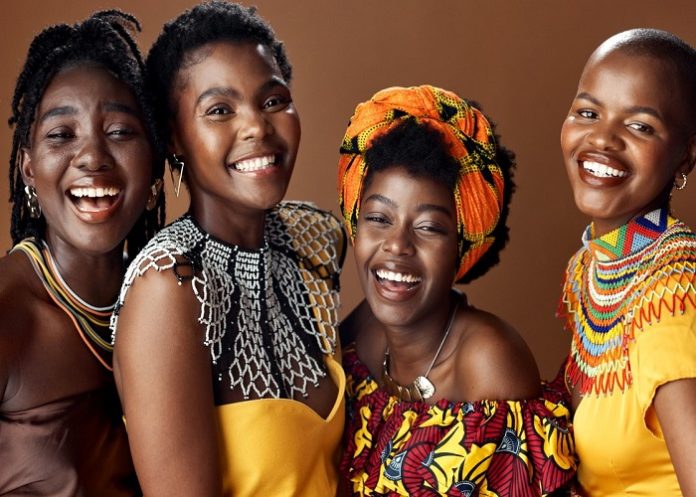Genetic factors contribute to some 30% of breast cancer cases in SA, say leading scientists, necessitating investment in genomic research in African contexts.
Their seminal genetic study published in Nature Communication has discovered two genetic variants linked to breast cancer in black South African women, deepening knowledge about the genetic basis for this disease in African populations.
The genome-wide association study (GWAS) of breast cancer is the first to have been done in African women living on the continent.
A GWAS is a powerful research method that scans the entire DNA of many people to find genetic differences associated with a specific disease or trait.
In this case, the scientists at the Sydney Brenner Institute for Molecular Bioscience (SBIMB) at Wits University scanned for breast cancer and found consistent genetic patterns in black South African women.
The SBIMB researchers discovered genetic signals around the gene RAB27A, a member of the RAS oncogene family, and USP22, a gene which is highly active in breast cancer cells and associated with a poor health prognosis.
“These genes have not been associated with the disease before, which is an important advance in understanding breast cancer risk and biology in women of African ancestry,” said Dr Mahtaab Hayat, the lead author of the study.
The two new genetic variants were identified in black South African women with breast cancer enrolled in the Johannesburg Cancer Study, compared with women without cancer in the Africa Wits-INDEPTH Partnership for Genomic Research (AWI-Gen) study.
Until now, most breast cancer genetics research has focused on European and Asian populations, with studies of African ancestry limited primarily to African- American women, who largely descend from West African populations.
A tool that estimates lifetime cancer risk based on DNA, the polygenic risk score (PRS), performed poorly in distinguishing South African women with breast cancer from those without.
“This is because most PRSs were developed in European populations, and their inaccuracy in African populations highlights the urgent need for ancestry-specific tools in cancer risk prediction,” saids Dr Jean-Tristan Brandenburg, also in the SBIMB and a lead author.
Breast cancer is the second most common cancer in South Africa and the most common cancer in women globally, with genetic factors contributing to about 30% of cases. “Our study makes a compelling case for investing in genomic research rooted in African contexts,” noted Hayat.
Potential for precision medicine
If further studies confirm these findings, the USP22 and RAB27A genes could be specific targets for new drugs. “We could potentially target harmful cancer cells while sparing healthy tissue, which is ideally what we want when administering cancer treatment,” said Distinguished Professor at the SBIMB, Chris Mathew, and a lead project investigator.
Furthermore, if a specific gene is associated with poorer survival, it can be used as a biomarker to identify more aggressive cancers and help predict which patients may need more intensive treatment and monitoring.
Understanding the genetic architecture of complex diseases helps scientists figure out the biological processes leading to these conditions and find drug targets and treatments for groups of individuals with similar disease risk profiles.
Genomic diversity in Africa is unparalleled
African populations have more genetic variation than any other population in the world, but they have been significantly under-represented in genomic research. This means that the global understanding of disease risk, and the tools and treatment developed from it, is limited.
“The study reveals that more people can benefit from genetic discoveries. It proves that new risk factors are still out there, waiting to be found,” said Hayat.
Study details
Genome-wide association study identifies common variants associated with breast cancer in South African black women
Mahtaab Hayat, Wenlong C. Chen, Chantal Babb de Villiers, Sang Hyuck Lee, Charles Curtis, Rob Newton, Tim Waterboer, Freddy Sitas, Debbie Bradshaw, Mazvita Muchengeti, Elvira Singh, Cathryn M. Lewis, Michele Ramsay, Christopher G. Mathew & Jean-Tristan Brandenburg.
Published in Nature Communication on 14 April 2025
Abstract
Genome-wide association studies (GWAS) have characterised the contribution of common variants to breast cancer (BC) risk in populations of European ancestry, however GWAS have not been reported in resident African populations. This GWAS included 2485 resident African BC cases and 1101 population matched controls. Two risk loci were identified, located between UNC13C and RAB27A on chromosome 15 (rs7181788, p = 1.01 × 10−08) and in USP22 on chromosome 17 (rs899342, p = 4.62 × 10−08). Several genome-wide significant signals were also detected in hormone receptor subtype analysis. The novel loci did not replicate in BC GWAS data from populations of West Africa ancestry suggesting genetic heterogeneity in different African populations, but further validation of these findings is needed. A European ancestry derived polygenic risk model for BC explained only 0.79% of variance in our data. Larger studies in pan-African populations are needed to further define the genetic contribution to BC risk.
See more from MedicalBrief archives:
New breast cancer genes identified in African women
Global study to determine why black people have worse cancers
Durban doctor leads the way with research on breast cancer trends

